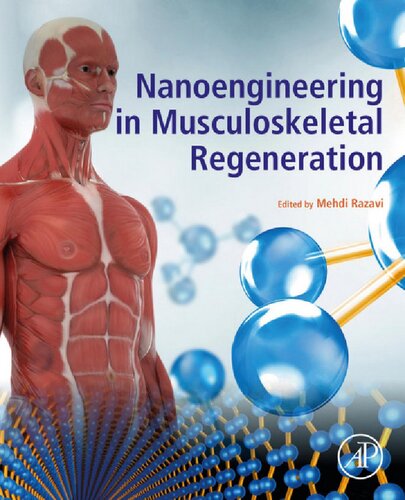

Most ebook files are in PDF format, so you can easily read them using various software such as Foxit Reader or directly on the Google Chrome browser.
Some ebook files are released by publishers in other formats such as .awz, .mobi, .epub, .fb2, etc. You may need to install specific software to read these formats on mobile/PC, such as Calibre.
Please read the tutorial at this link. https://ebooknice.com/page/post?id=faq
We offer FREE conversion to the popular formats you request; however, this may take some time. Therefore, right after payment, please email us, and we will try to provide the service as quickly as possible.
For some exceptional file formats or broken links (if any), please refrain from opening any disputes. Instead, email us first, and we will try to assist within a maximum of 6 hours.
EbookNice Team

Status:
Available5.0
32 reviewsNanoengineering in Musculoskeletal Regeneration provides the reader an updated summary of the therapeutic pipeline―from biomedical discovery to clinical implementation―aimed at improving treatments for patients with conditions of the muscles, tendons, cartilage, meniscus, and bone. Regenerative medicine focuses on using stem cell biology to advance medical therapies for devastating disorders. This text presents novel, significant, and interdisciplinary theoretical and experimental results related to nanoscience and nanotechnology in musculoskeletal regeneration. Content includes basic, translational, and clinical research addressing musculoskeletal repair and regeneration for the treatment of diseases and injuries of the skeleton and its associated tissues.
Musculoskeletal degeneration and complications from injuries have become more prevalent as people live longer and increasingly participate in rigorous athletic and recreational activities. Additionally, defects in skeletal tissues may immobilize people and cause inflammation and pain. Musculoskeletal regeneration research provides solutions to repair, restore, or replace skeletal elements and associated tissues that are affected by acute injury, chronic degeneration, genetic dysfunction, and cancer-related defects. The goal of musculoskeletal regeneration medicine research is to improve quality of life and outcomes for people with musculoskeletal injury or degradation.